
P. (Peter) Stephen Baenziger
P.(Peter) Stephen Baenziger is the Nebraska Wheat Growers Presidential Chair and Professor in the Department of Agronomy and Horticulture at the University of Nebraska. He earned degrees from Harvard University in biochemi¬cal sciences and from Purdue University in plant breeding and genetics. Before joining the faculty at the University of Ne¬braska, he worked eight years on wheat and barley germplasm enhancement for the USDA-ARS at Beltsville, MD, and three years with Monsanto Corporation on wheat plant growth regulators and biotechnology. His research focuses on improving the agronomic performance and winterhardiness of winter wheat, barley, and triticale, and on developing new breeding methods. He has co-released 47 cultivars and 36 germplasm lines or populations. In 2015, he received the Lifetime Achievement Award from the National Association of Plant breeders. His teaching and service activities emphasize graduate education and outreach in plant breeding and genetics. Dr. Baenziger is active in Crop Science Society of America and has been a Division Chair and President, as well as an Associate Editor, Editor, and Editor-in-Chief of Crop Science (their flagship journal). He is also active in the American Association for the Advancement of Science where he was elected Chair of Section O (Agriculture, Food, and Renewable Resources). He is the past Chair of the National Wheat Genomics Committee, and the past Chair of the Plant Breeding Coordinating Committee. He is currently on the Board of Trustees for the International Rice Research Institute and on the Scientific Advisory Boards of the BREADWHEAT. He is an honorary professor of the Ningxia Academy of Agriculture and Forestry Sciences and a Fellow of American Society of Agronomy, Crop Science Society of America, and the American Association for the Ad-vancement of Science. He has over 200 publications and has received millions of dollars in grants to support his research.
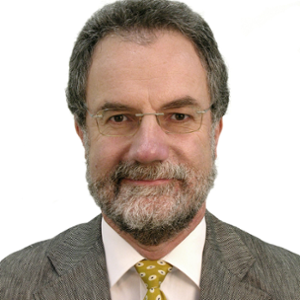
Hans-Joachim Braun
Hans-Joachim Braun is Director of CIMMYT’s Global Wheat Program, which develops and distributes wheat germplasm to around 100 countries. Since 2015 he is also director of the CGIAR Research Program WHEAT. Hans had joined CIMMYT in 1983 as wheat breeder and led the TURKEY CIMMYT ICARDA International Winter Wheat Improvement Program from 1985 – 2006. He contributed to the development of more than 40 winter wheat varieties released mainly in West and Central Asia and was involved in recognizing Zn deficiency and soil borne diseases as a major constraint for winter wheat production in the dryland areas of West Asia. He has a PhD from the University of Hohenheim, Germany.

Achim Dobermann
Professor Dobermann is the Director & Chief Executive of Rothamsted Research. In this role he provides leadership for a wide range of research programs that aim to develop new solutions for the sustainable management of agricultural systems. Dr. Dobermannhas over 30 yearsof agronomic field research experience from all world regions. He receiveda M.Sc. degree in tropical agriculture (1987) and a PhD degree in soil science (1991) from the University of Leipzig in Germany. In 1992 he joined the International Rice Research Institute (IRRI)as a soil scientist, followed by an appointment as Professor at the University of Nebraska-Lincoln from 2000 to 2007. From 2008 to 2014 he served as Deputy Director General for Research at IRRI in the Philippines, where he also led the development of the Global Rice Science Partnership (GRiSP).He has authored or co-authored numerous scientific papers and several books on a wide range of agricultural issues and has received many awards from various academic, government and industry organizations. He is an Editor of theinternational journal Global Food Securityand a Fellow of the American Society of Agronomy, the Soil Science Society of America, and the Society of Biology (UK).As a member of the Leadership Council and co-chair of the Thematic Group on Sustainable Agriculture and Food Systems of the Sustainable Development Solutions Network (SDSN, unsdsn.org), Professor Dobermann contributes to defining the goals, targets and new initiatives for the global sustainable development agenda.
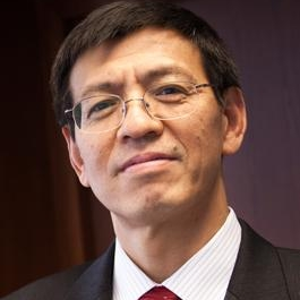
樊胜根
Fan Shenggen (樊胜根) has been director general of the International Food Policy Research Institute (IFPRI) since 2009.
Dr. Fan joined IFPRI in 1995 as a research fellow, conducting extensive research on pro-poor development strategies in Africa, Asia, and the Middle East. He led IFPRI’s program on public investment before becoming the director of the Institute’s Development Strategy and Governance Division in 2005.
He now serves as the Vice-Chair of the World Economic Forum’s Global Agenda Council on Food and Nutrition Security, after serving as Chair of the Council from 2012 to 2014. He is one of the Champions of Target 12.3 of the Sustainable Development Goals, dedicated to inspiring ambition, mobilizing action, and accelerating progress toward cutting global food loss and waste. He serves as advisor to many national governments (including China and Vietnam) on agriculture, food security and nutrition.
In 2014, Dr. Fan received the Hunger Hero Award from the World Food Programme in recognition of his commitment to and leadership in fighting hunger worldwide.
Dr. Fan received a PhD in applied economics from the University of Minnesota and bachelor’s and master’s degrees from Nanjing Agricultural University in China.
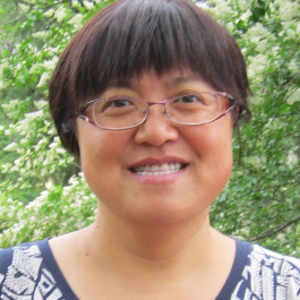
高彩霞
Gao Caixia is Principal Investigator of the Institute of Genetics and Developmental Biology (IGDB), Chinese Academy of Sciences. Prior to joining IGDB in 2009, she served as Research Scientist (Plant Genetic Transformation) of DLF-Trifolium’s biotechnology group in Denmark. Dr. Gao completed her Ph.D. in Agronomy from China Agricultural University, Beijing, and her M.Sc. and B.S. degrees in Agronomy from Gansu Agricultural University, Lanzhou. Her extensive research and professional experience has been in plant genome engineering, crop molecular breeding and plant genetic transformation. Gao Caixia’s research area mainly focuses on developing a highly efficient and robust TALEN and CRISPR/Cas9 platform in plant cells to enable targeted genome editing as well as employing the developed platform for targeted gene mutagenesis, addition and editing to identify and modify plants traits for high-quality, disease resistance and stress tolerance in crop species.
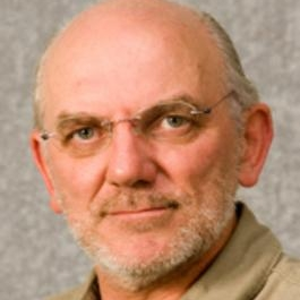
Graeme Hammer
Graeme is a Professor in Crop Science and Director of the Centre for Plant Science (CPS) in the Queensland Alliance for Agriculture and Food Innovation (QAAFI), which is a research institute of The University of Queensland, Australia.
Graeme conducts research on the physiology and genetics of complex adaptive traits in field crops with a focus on water productivity in cereals. His research underpins the development of mathematical models of crop growth, development and yield that enable simulation of consequences of genetic and management manipulation of crops in specific target environments. He has played a leading role in the design and on-going development of the APSIM crop modelling platform, which is now used world-wide.
His research approach provides unique opportunities to:
• Aid crop management and design for enhanced production in water-limited environments.
• Enhance the utility of molecular breeding for drought adaptation.
• Identify avenues to cope with climate risks in field crop production.
He is a Fellow of the Australian Agriculture Institute and was awarded the Australian Medal for Agricultural Science in 2013 and Farrer Memorial Medal in 2012.
PUBLICATION
Published extensively (130+ publications in refereed scientific journals, lead editor of 2 books, 20+ book chapters, 120+ major conference papers) with contributions widely cited by peers (h-index of 40). Invited presenter at numerous national and international symposia.
Some significant papers indicate a pioneering role in:
• crop physiology, crop modelling and integrated agricultural systems research.
• research that underpinned the establishment of the field of ‘climate applications’ by linking seasonal climate forecasting with agricultural systems modelling.
• a more recent role as a leading innovator in systems approaches to molecular breeding by linking molecular biology and physiology with breeding via genotype-to-phenotype modelling.
A full list of publications highlighting the development and on-going innovation in these fields is available via Thomson ISI researcher-id (see http://www.researcherid.com/rid/A-3785-2008).
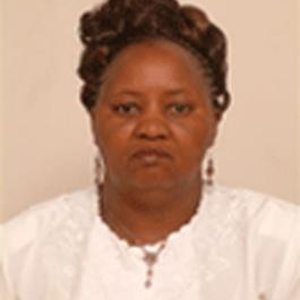
Jane Muthoni Ininda
Dr. Jane Muthoni Ininda, currently Associate Director, Emerging Initiatives at the Alliance for a Green Revolution in Africa (AGRA) holds a Ph.D. (Plant Breeding-Major, Statistics-Minor) from Iowa State University, USA. She is a recipient of the C.R. Weber Award in recognition for outstanding achievement in graduate study in Crop Science. Her role in AGRA is to oversee, manage and direct AGRA investments in crop research and the seed value chain; and leader in all investments in crop improvement research for food security crops in Eastern and Southern Africa (Ethiopia, Kenya, Uganda, Rwanda, Tanzania, DR Congo, South Sudan, Tanzania, Malawi, Zambia, Mozambique and South Africa). Through her career she lead a team of crop breeders who have developed and released 350 improved varieties of food security crops; of which 229 of these varieties are commercialized mainly through private seed companies. She has been involved in agricultural sciences for over 30 years, carrying out extensive research and expert technical advice on food crops in Africa. Jane has worked with the Kenya Agricultural Research Institute (KARI) as wheat, amaranth, soybean and maize breeder. Her major contribution while in KARI was the development and release of 26 maize streak virus resistant maize hybrids for the medium altitude areas of Kenya, and in partnership with private sector enterprises initiated successful commercialization. She has published over 45 research papers in journals and proceedings. Realizing the importance of forming strong alliances and sharing updated information and knowledge among agricultural scientists she founded the ‘Modern and Visionary Breeders’ and other key networks in crop breeding in Africa. In 2002, she initiated the Maize Breeders Network for Eastern and Southern Africa. These networks have now been expanded to include all important African staples such as rice, beans, cassava, sorghum and millets. She has also featured the effects of food shortage in a film ‘Silent Killer-the unfinished Campaign against hunger’.
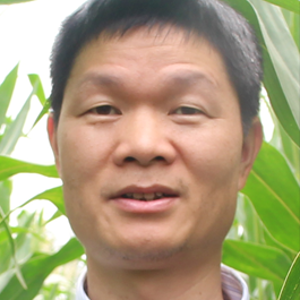
赖锦盛
Professor, Director of National Maize improvement Center, China Agricultural University
Experience
Dr. Lai got his Ph.D in the Depatment of Plant Genetic and Breeding, China Agricultural University in 1996. He then worked as a postdoctoral fellow and research associate in the Waksman Institute, Rutgers, the State University of New Jersey, USA. Before coming back to China in 2006, he worked as project Lead of Corn Structural Genomics (then Crop Structural Genomics) in St. Louis, Monsanto Company.
Research area and award
1) maize structural and functional genomics;
2) maize endosperm development and genetic imprinting;
3) molecular breeding and biotechnology application in maize.
Dr. Lai’s Lab has published recently a number of high impact research papers including those from Nature Genetics, PNAS, Genome Research, Plant Physiology, the Plant Journal etc. Dr. Lai has received a number of awards including the “Outstanding Young Investigator” award from the National Natural Science Foundation of China. Dr. Lai is currently the Standing Board member of the Crop Science Society of China. Dr. Lai is also serving as the member of the editorial board for the Plant Cell, JIPB, MGG.